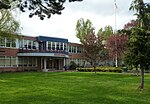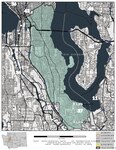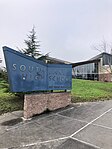Sephardic Bikur Holim Congregation (SBH) is a Sephardic congregation with a synagogue in the Seward Park neighborhood of Seattle, Washington. The name Bikur Holim (which can be transliterated various ways into English) means visiting or comforting the sick, an important mitzvah. The first official name of the congregation was Spanish Hebrew Society and Congregation Bikur Holim, shortened to "Sephardic Bikur Holim" ("Sephardic" to avoid confusion with Seattle's similarly named Ashkenazic congregation). For a time in the 1930s, after amalgamation with another congregation, it was known as Bikur Holim Ahavath Ahim Congregation.SBH is one of Seattle's two Sephardic congregations, the other being Congregation Ezra Bessaroth. With about 4,000 Sephardim, Seattle is in contention with Miami for having the nation's third largest Sephardic population, behind New York City and Los Angeles. According to Aviva Ben-Ur, the influence of the Sephardim within the Jewish community has arguably been greater in Seattle than anywhere else in the United States. At their relative peak, Sephardic Jews constituted about one-third of Seattle's Jewish population; today, they constitute about ten percent. (another source says 18 percent); the Sephardic community in New York at the time made up less than 1 percent of that city's far more numerous Jewish Community; today, thanks to an influx of Syrian, Persian and Bukharian Jews, Sephardim make up a far larger portion of that metropolitan area's Jewry. Although both Seattle Sephardic congregations are Orthodox, many less observant members and even secular Jews attend, because they identify strongly with being Sephardic.Roberta Noel Britt writes that the congregation got its name from its original synagogue in Seattle's Central District, the former synagogue of the (Ashkenazic) Bikur Cholim, now Bikur Cholim Machzikay Hadath, which was purchased in 1913. The congregation's own website says that the name was adopted from an identically named congregation in Tekirdağ, Turkey.








